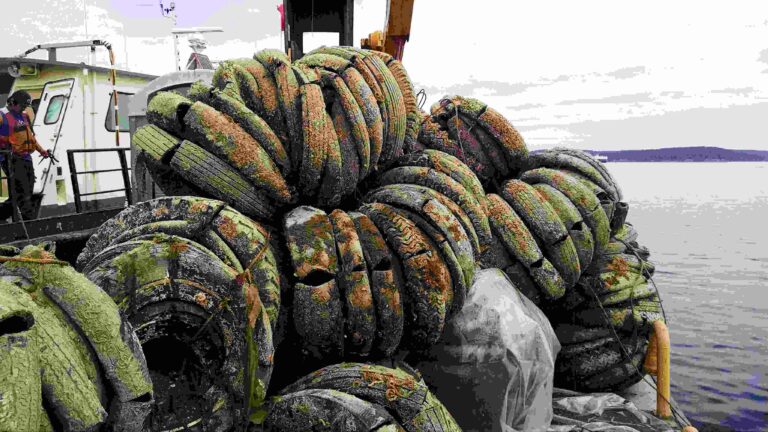The dedicated divers of the Washington Scuba Alliance (WSA) deserve a shout-out for the sheer depth and breadth of their ambition. Their declared mission has become to find and remove the half-million vehicle tyres they reckon have been abandoned in their eastern Pacific waters – principally the 160km-long Puget Sound in the Salish Sea.
As it happens, most of these tyres were not simply dumped at sea as rubbish but, from the 1970s on, were claimed to be making a far-sighted contribution to the marine environment – by providing secure habitats for marine life.
Also read: ‘We found long-banned pollutants 8,000m deep’
“Fifty years ago, placing many thousands of tyres on the bottom as an artificial reef seemed like a great idea!” WSA vice-president Randy Williams told Divernet. A retired marine science technician for the US Coast Guard, Williams remains a working science diver today.
“Our state did it, not knowing then the ramifications,” he says of Washington. “Five decades later, we know it was a bad idea, but it was common practice back then. Florida, Guam and California all did the same thing.”
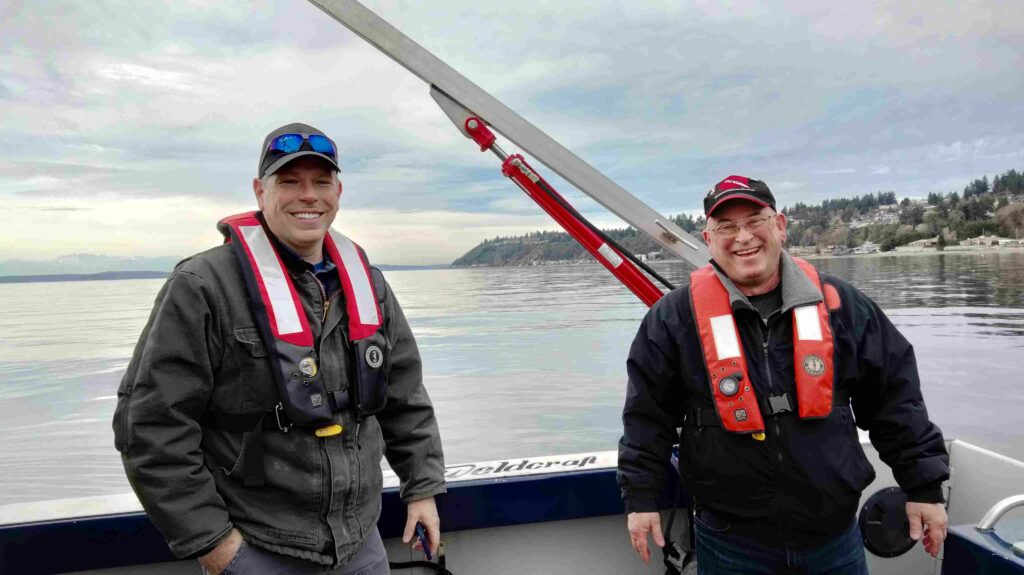
While shipwrecks, stone or concrete can create environmentally friendly reefs, tyres made of rubber and plastics break down under water to produce microparticles and toxic chemicals. Those marine-life species that grow on tyres are likely to become poisoned. Analysis reveals that they absorb the heavy metals such as lead and zinc that leach out from the tyres.
WSA operates through the services of volunteer divers and public donations. Further funded more recently by a Washington State Department of Ecology grant, it has just completed the second year of a systematic search to map out the positions of all the Puget Sound tyre-reefs, with the help of sonar-scanning research vessels.
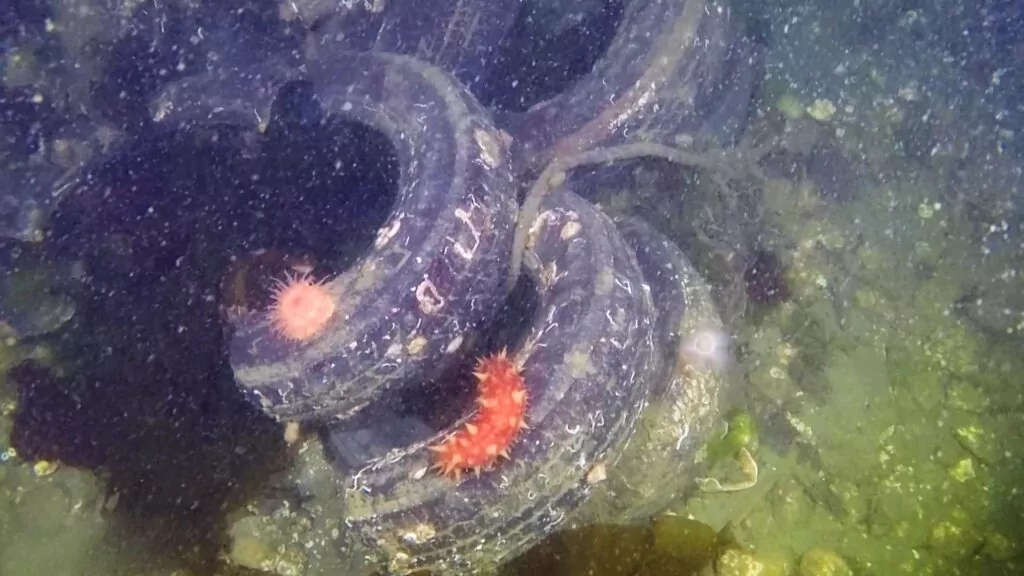
“We found many more bundles of tyres than we expected,” says Williams. The team also found individual tyres scattered over large areas of seabed. “Many of the old bundles have come apart over the years – currents in Puget Sound can be quite strong,” he explains, adding that although submerged for many decades the tyres “still don’t show much life growing on them”.
“We have now been given approval by Washington state to remove tyres from two specific locations in Des Moines: Saltwater State Park and Redondo, and we’re planning to remove them in early 2023,” says Williams. “It’s a start!”
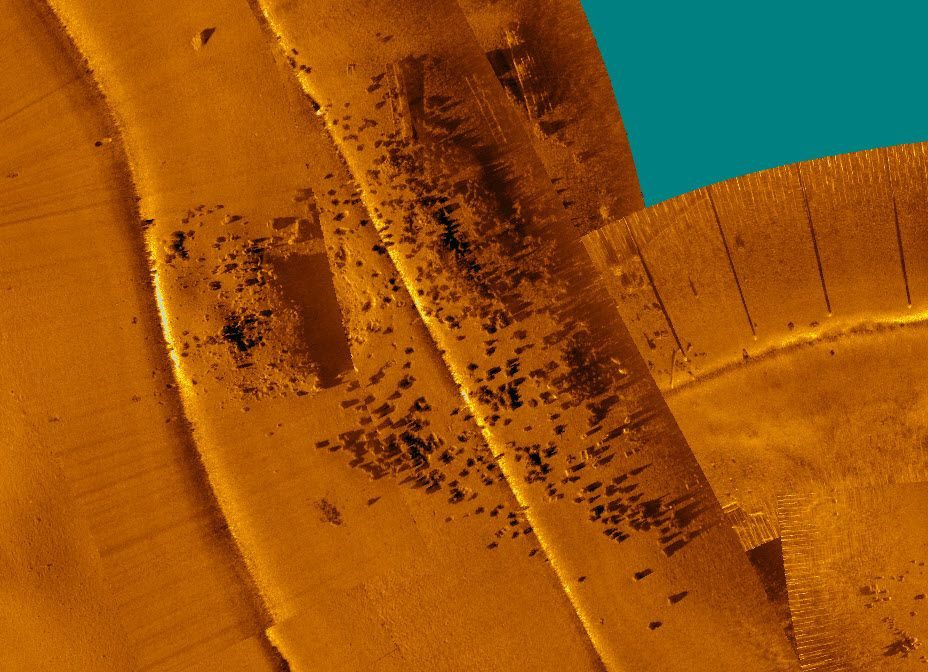
To further its Puget Sound Tyre Reef Removal Project, WSA now has a contracted partner in the company Coastal Sensing & Survey, owned and run by Ben Griner.
“Ben’s specialised boat is amazing, with incredible side-scan sonar, multi-frequency and multibeam survey capability,” says Williams. “In addition, we use two ROVs equipped with onboard scanning sonar, and all this is tied into very accurate GPS positioning.”

Williams pays tribute to the dedication of WSA president Jim Trask, and also to Randi Weinstein, the WSA’s treasurer. Because she is Williams’ wife, their same-sounding first names might be expected to give rise to comedic confusion, but he says she “does a great job of keeping this programme on the financial straight and narrow course”.
The WSA attracts volunteer divers from local dive-clubs and centres as well as charter-boat operators keen to collaborate on its projects, and it has a proud record of achievement that now spans 30 years. Much of the members’ time has been spent working with local authorities to create safe havens for marine life by creating a series of underwater parks, and on wreck-finding projects, but they also have previous experience of tyre removals.
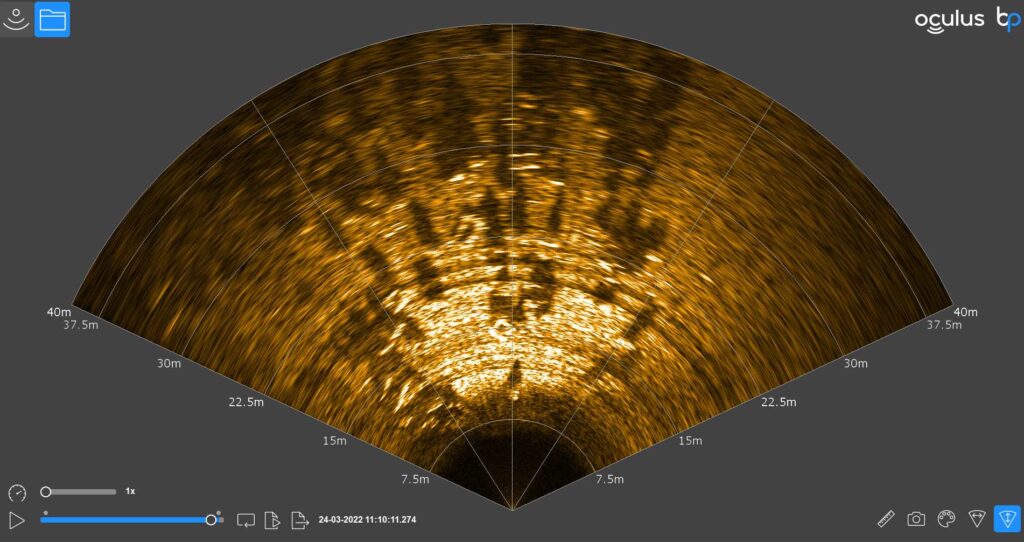
One example was a partnership with Metro Parks of Pierce County and the Nisqually Tribal Nation, which ran a commercial dive-training operation and “did much of the heavy lifting” as WSA divers succeeded in removing more than 3,000 tyres from beneath a fishing-pier in Tacoma.
“We do live in a special place, but while Puget Sound and the Salish Sea are great they have been mistreated far too much over the years,” says Williams. “WSA has the goal of turning some of those mistakes around – and making it a much better place to dive.”
Also on Divernet: Divers Answer Epic Clean-Up Call, Clued-Up Divers Will Pay To Go Green, PADI Divers Help To Intercept Plastics
